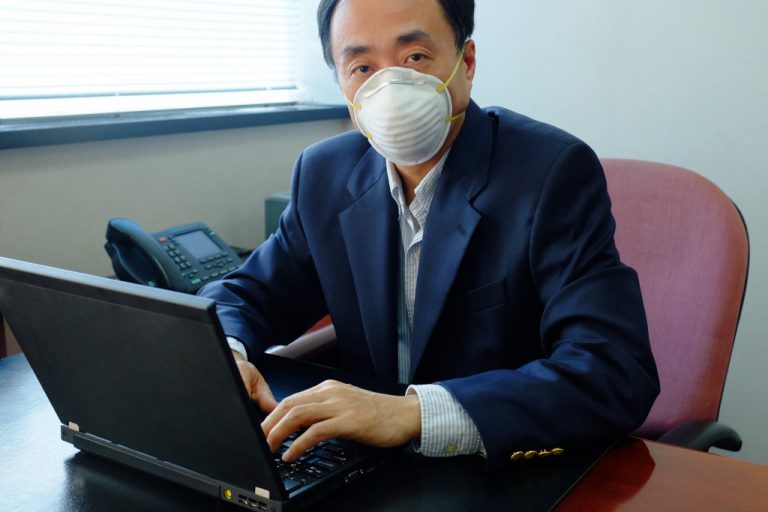The release of the COVID-19 vaccines was such a momentous day in America. Within months, numerous individuals got immunized. In fact, Seattle reached herd immunity in June, the first major city to do so. While San Francisco is likely next, only a few other cities have gotten close to that milestone.
And now that the Delta variant has reached the country, healthcare industry prospects are looking grim once more. The Delta variant spreads faster than the previous variants and can affect fully vaccinated individuals. Luckily, the vaccines prevent severe infections. But that’s not a reason to put our guards down. The employees about to return to the office are at risk.
For this reason, authorities urge Americans to wear face masks indoors again. If the health protocols are even stricter this time, should we go back to the office? If your company has already resumed its normal operations, here’s how the Delta variant can affect your employees’ well-being:
Unvaccinated Employees Face a Bigger Threat
The COVID-19 Forecast Hub predicts that by August 21, Delta cases will go somewhere between 29,000 and 176,000 per day. But hospitalizations and deaths will drop, given the number of vaccinated people. Still, the Institute for Health Metrics and Evaluation (IHME) foresees a peak of around 1,000 deaths per day in Mid-September. By November 1st, they predict an additional 76,000 deaths.
But the U.S. isn’t as powerless as it seems. If 95% of the population gets vaccinated and continues wearing face masks indoors, we can prevent 49,000 deaths. Hence, encourage your unvaccinated employees to get their shots as soon as possible. If they’re unwilling, then they must strictly abide by the health protocols. It’s their only way to avoid getting sick and passing the virus to their fellow unvaccinated colleagues and peers.
Mental Health Issues Can Rise
In the early days of the pandemic, many people suffered anxiety and other mental health problems. That can happen again one of these days. And it could be worse, considering the bigger threat of the Delta variant.
HR managers should anticipate widespread anxiety in the workplace. They should prioritize mental health management, as recommended by the founder, CEO, and chairman of ComPsych, Richard Chaifetz. He says that employers should support managing feelings and logistics because it can go a long way in maintaining a healthy and productive workforce.
True enough, 50% of employees worry about the rapidly spreading Delta cases the most. 33% feel overwhelmed at the thought of changing their family routines again, and 10% fear childcare challenges, such as difficulty finding care.
To ease these employee troubles, HR managers should look into investing in long-term mental health solutions. These solutions should reduce absenteeism, disabilities, and healthcare costs. Alternatively, they should increase recruitment, retention, and employee satisfaction.
There’s no one-size-fits-all solution to poor mental health. Every employee will require something different. As such, the best way to address poor mental health in your workplace is to ask your employees how you can help. Tailor your solutions according to their needs, and you’d find your strategies effective.
Employees With Major Life Plans Might Rush into Action

If you have employees who planned a buy a home during the pandemic, chances are they went for it. Mortgage rates reached record lows in 2020. In July last year, the average rate of a 30-year fixed-rate mortgage went from 3.72% to 2.78%. This created a huge demand for housing.
The demand remained high during the first half of 2021. Most home-buyers were Millennials starting to form their own families. According to Greg Toshi, CEO of Poplar Homes, those Millennials were planning to buy a home from 2022 to 2025. But the Delta variant could urge them to buy earlier.
Reputable mortgage companies still offer affordable rates. On August 5, in fact, the average rate of a 30-year fixed-rate mortgage fell back down to 2.77% after rebounding to 2.80% on the week prior. So your employees who withheld their home-buying plans last year might rush into action now. Meanwhile, those who just decided to buy a home might start applying for a loan anytime soon.
Your Organization Should Stay Compliant to Health Protocols
Overall, the threat of the COVID-19 virus is far from over. Even if your entire organization is already immunized, you should keep following health protocols. Social distancing must still be encouraged. No one should go mask-less inside the office.
And most importantly, you should continue observing the thorough cleaning habits you adopted last year. Knowing how fast the Delta variant can spread, no one should think they’re immune because they’re vaccinated. So aside from managing your employees’ mental health, supporting them in their major plans, and encouraging them to get vaccinated, boost your immune system by staying clean and hygienic.




